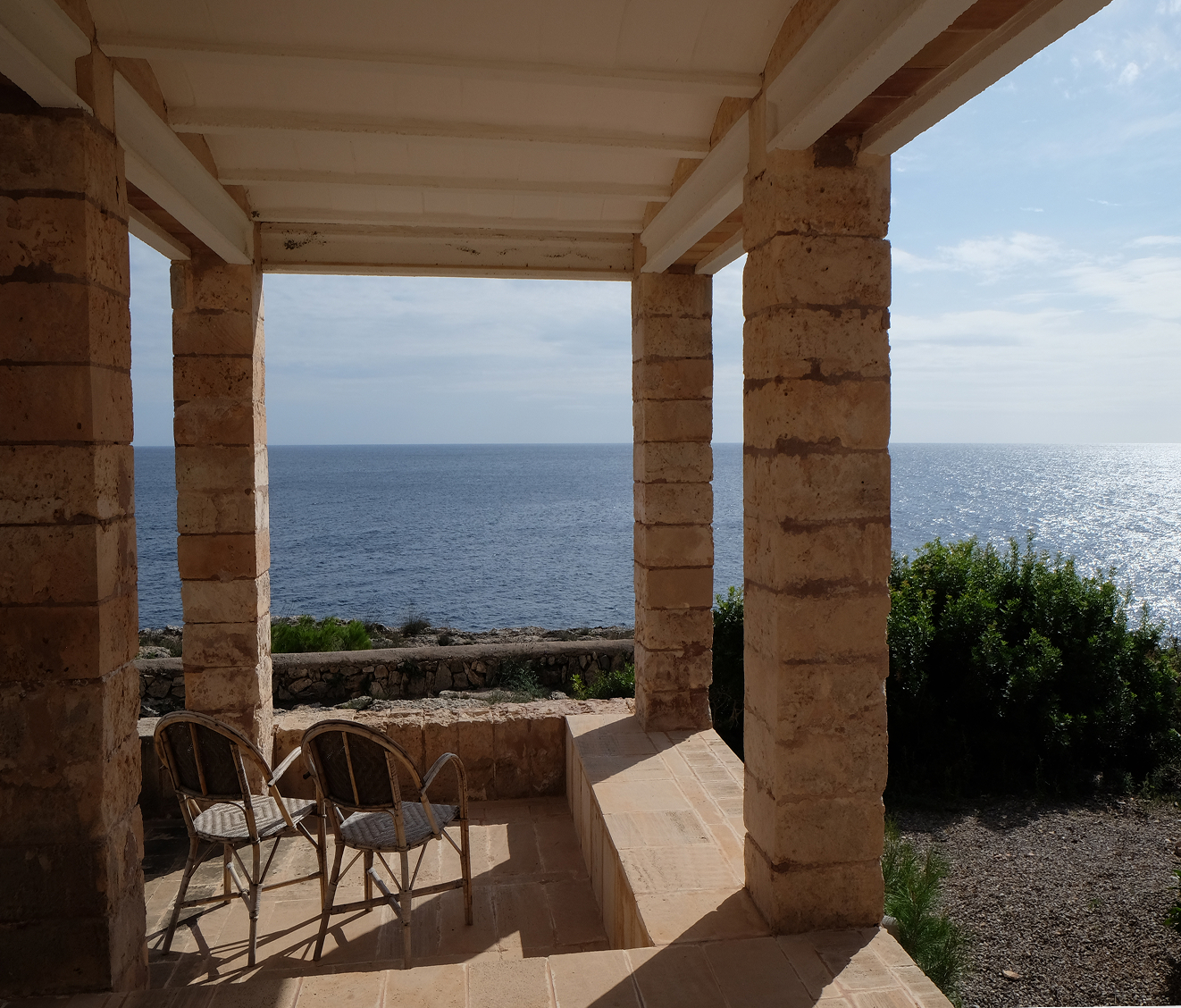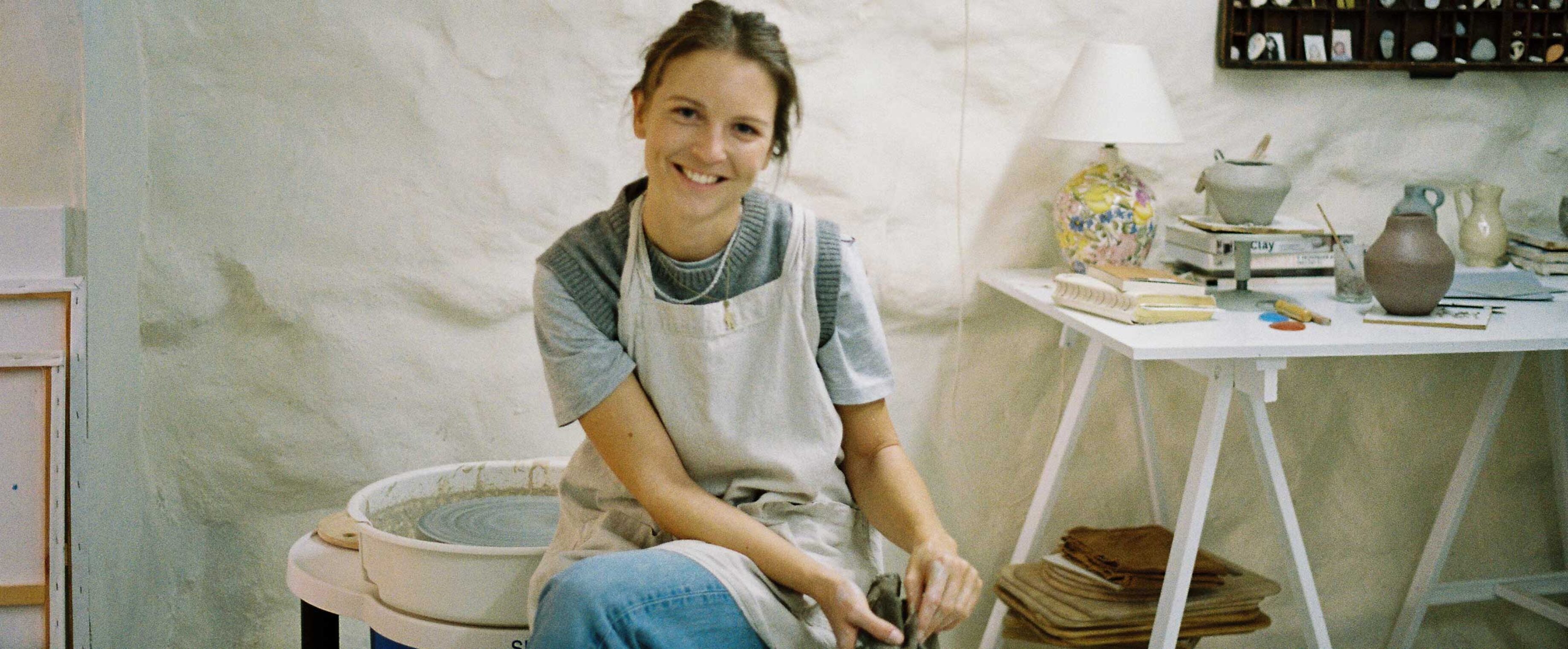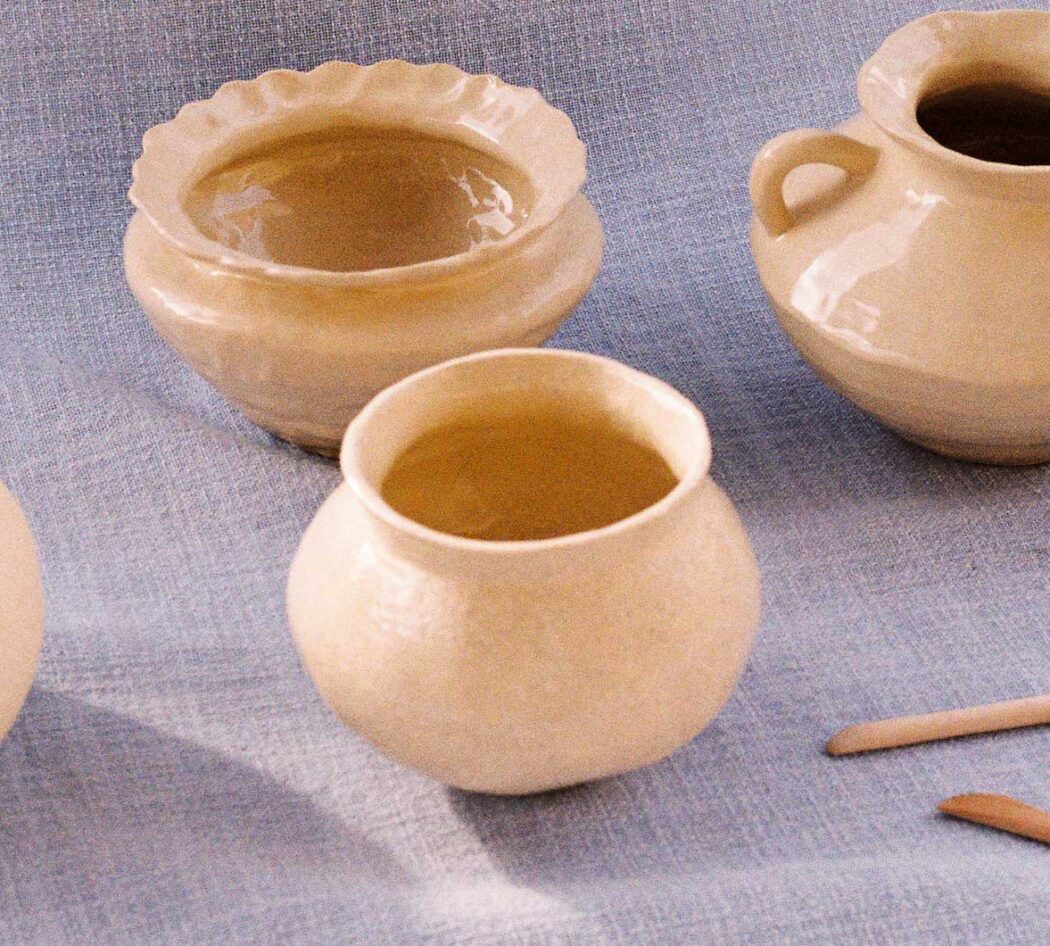A Peek Inside a Little Pottery Cave
Ceramicist and dada-days’ founder, Lisa Heschel came up with the idea for dada-days with a ball of clay in hand. She wondered, “why can travelers choose between countless nature and sports holiday packages, yet there are hardly any options when it comes to creativity?” Lisa Heschel’s alternative offer encourages a different way to enjoy travel – going off the beaten path to get a taste of creative Mediterranean life. When she is not out visiting studios for dada-days, Lisa can be found working creatively herself. She discovered her passion for ceramics in Mallorca four years ago and has since set up a small pottery studio in her basement.
Learn more about Lisa and her creative process in our interview below.
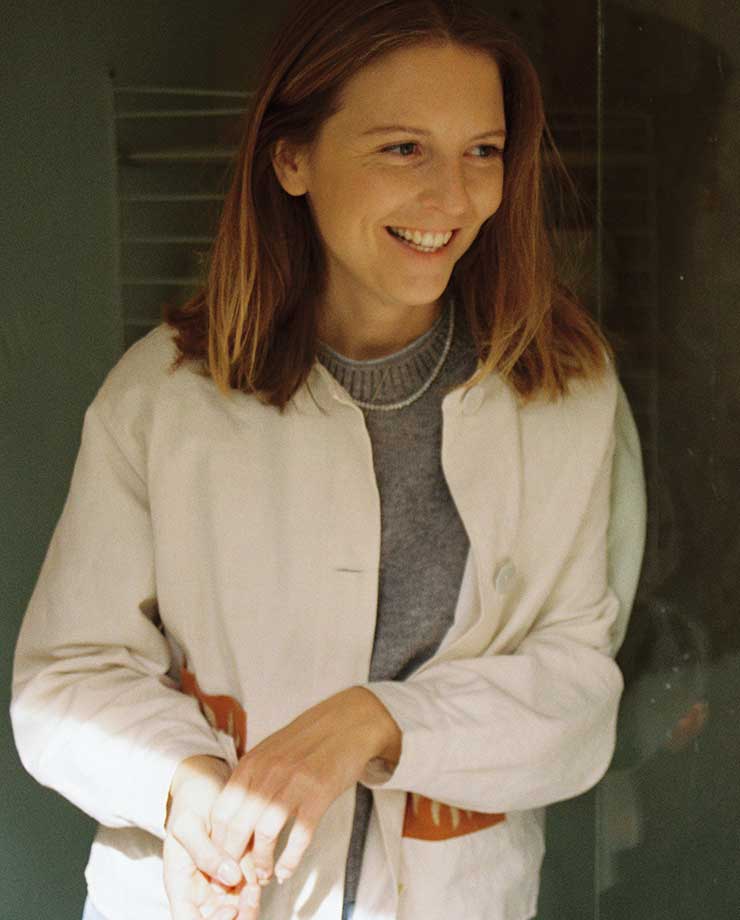
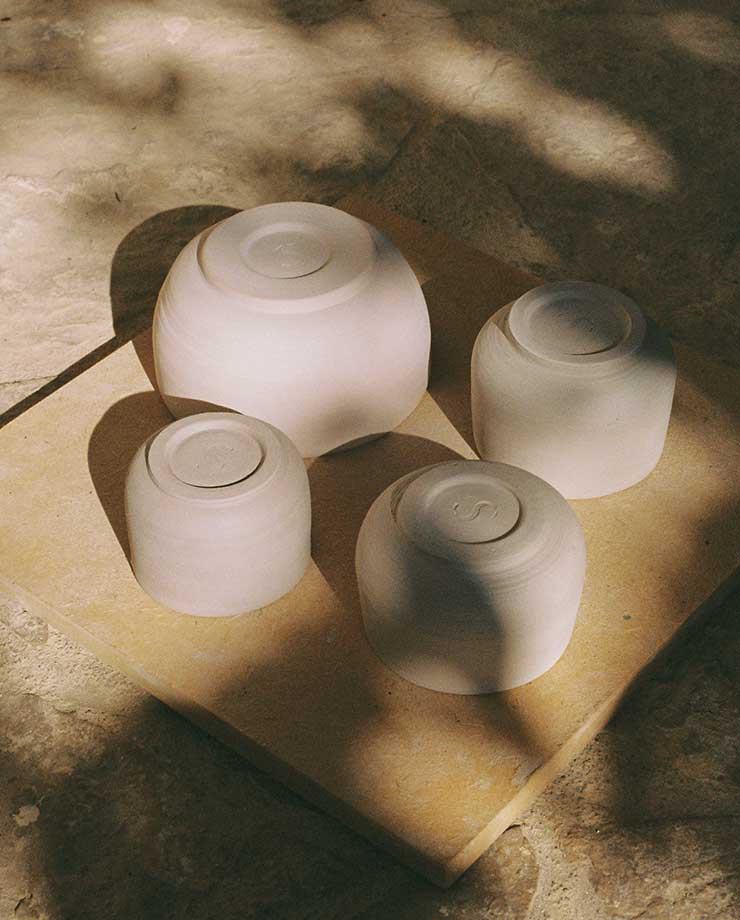
Hi Lisa, could you start by introducing yourself? What is your professional background?
My name is Lisa Heschel, I’m 33 years old, and I’m from Germany. Three years ago me and my little family (me, my partner, and daughter) moved from Berlin, where we had spent the past ten years, to a small town called Campanet in northern Mallorca. I studied business administration in Cologne and Communications in Social and Economic Contexts at the University of the Arts in Berlin and Paris. Before moving to Mallorca, I worked as a creative consultant and gallery assistant in Berlin.
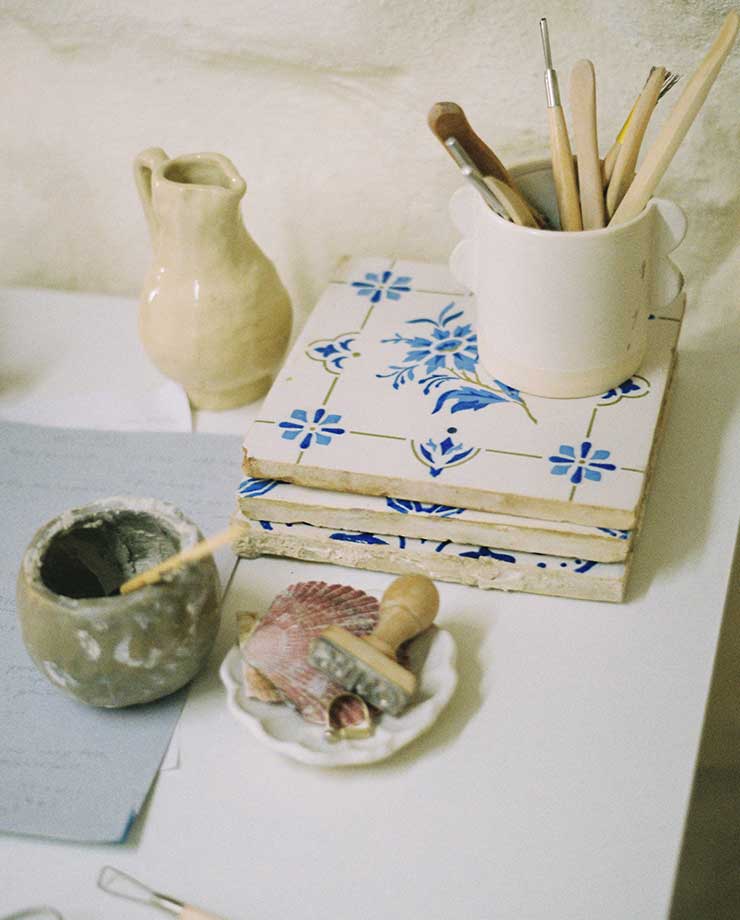
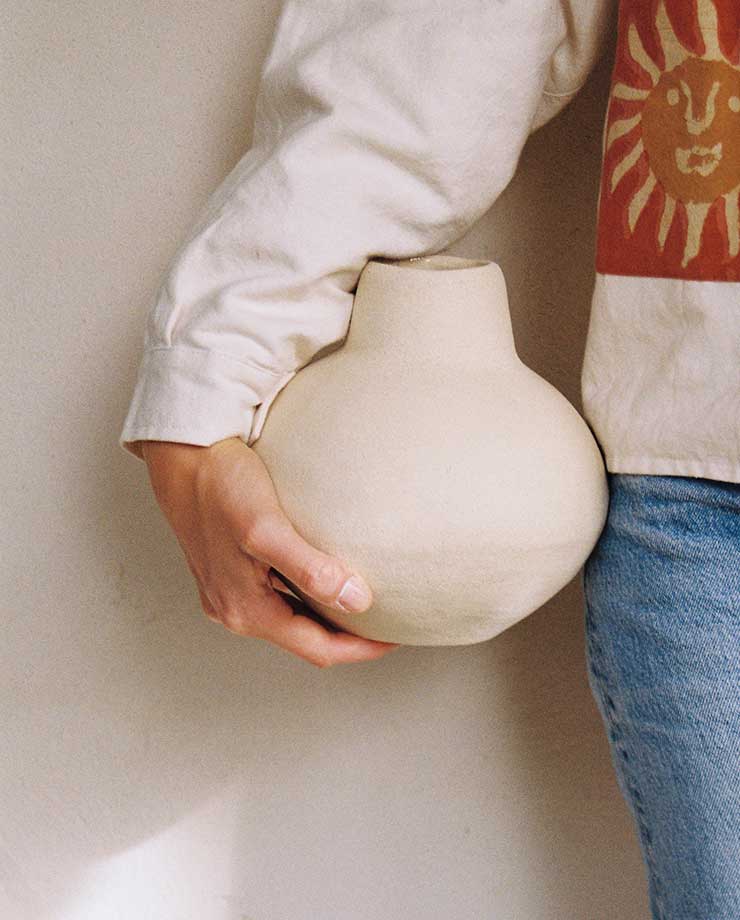
You moved to Mallorca and self-started dada-days in 2021 after living in Berlin for many years. What made you want to launch dada-days?
When our daughter was born, we used our parental leave to spend three winter months in Mallorca. During this time, I went to a pottery studio in Manacor to have some “me time” (I had a small baby at the time) and to realize my dream of learning pottery. The time I spent in the studio ended up being really transformative, eventually leading me to the idea for dada-days.
Once we got back to Berlin, we were very unhappy. I wanted to go back to work, but we couldn’t find a daycare and it was difficult for us to get used to the German mentality again. After having lived in Spain where people happily shouted “Hola, que tal?!” across the market square, it was a big transition to return to Berlin.
My partner and I sat down and thought about how we really wanted to live and spend our future. We were fortunate to get the chance and have the freedom to think about these questions seriously. In the end, we made the choice to move to Mallorca. Although my partner could work remotely, I needed to think of a new way to make a living. I remembered my time in the pottery studio and began thinking, “There are so many creative people who would love to spend their free time having an experience like mine, but there isn’t a place yet for easily accessible curated art and craft classes.” From this idea, dada-days was born.
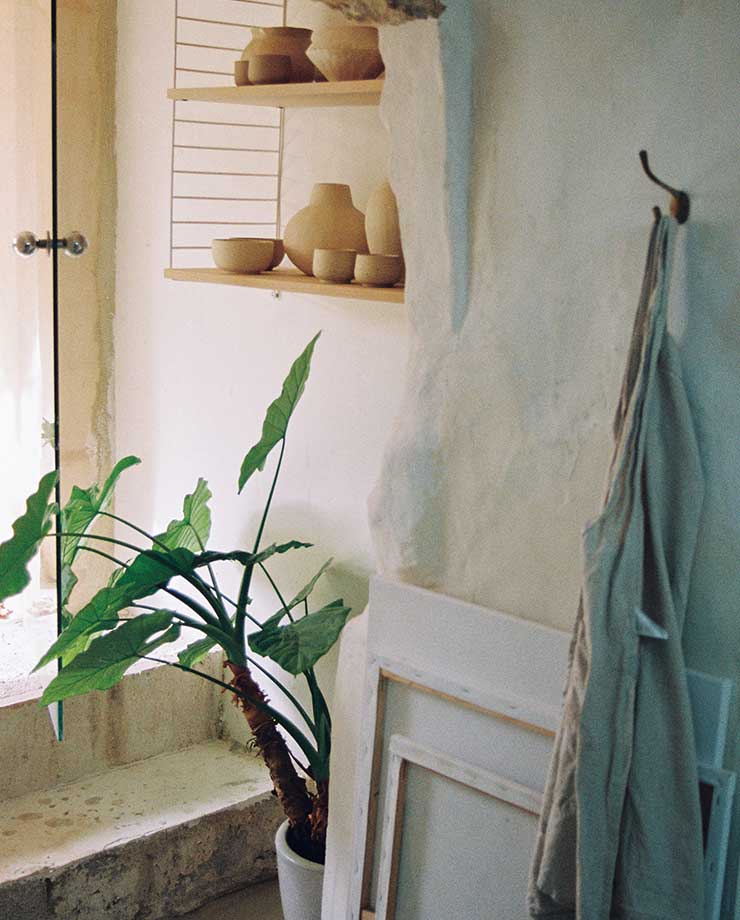
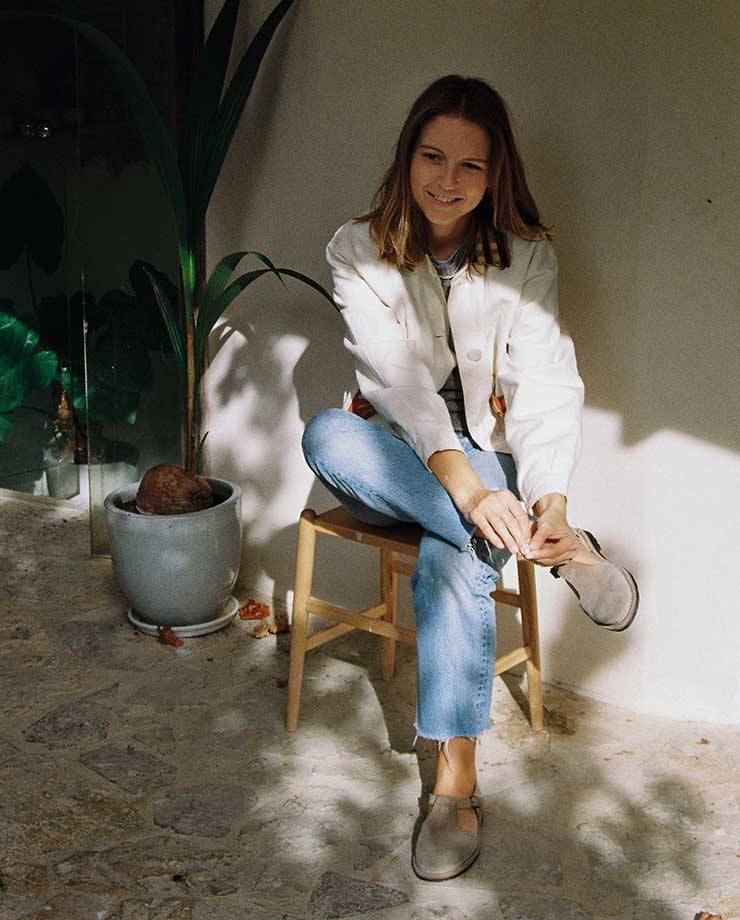
What was it like starting a business in a new country?
Once we arrived on the island, I began contacting artists, visiting their studios, taking photographs, conducting interviews and drafting workshop concepts. It is the most inspiring and greatest job I can imagine. But, yes, of course, I’m not from here, so I still often feel insecure. Things can take longer and there are cultural differences at play that need more careful attention. It took a lot of energy and courage to start dada-days and looking back, I’m really glad I did it – I feel very lucky to do what I love.
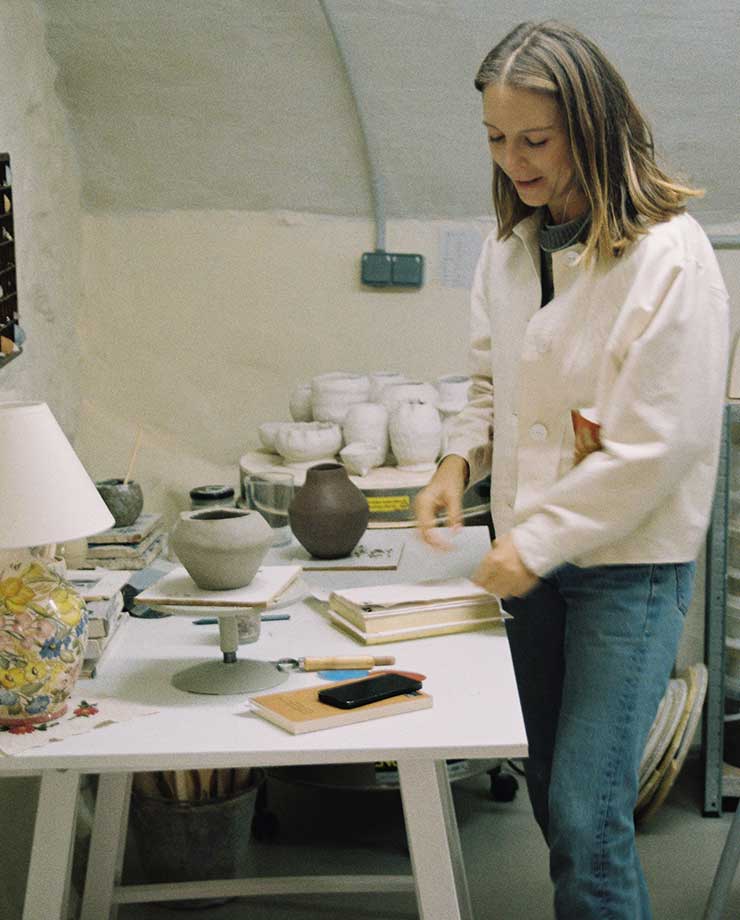
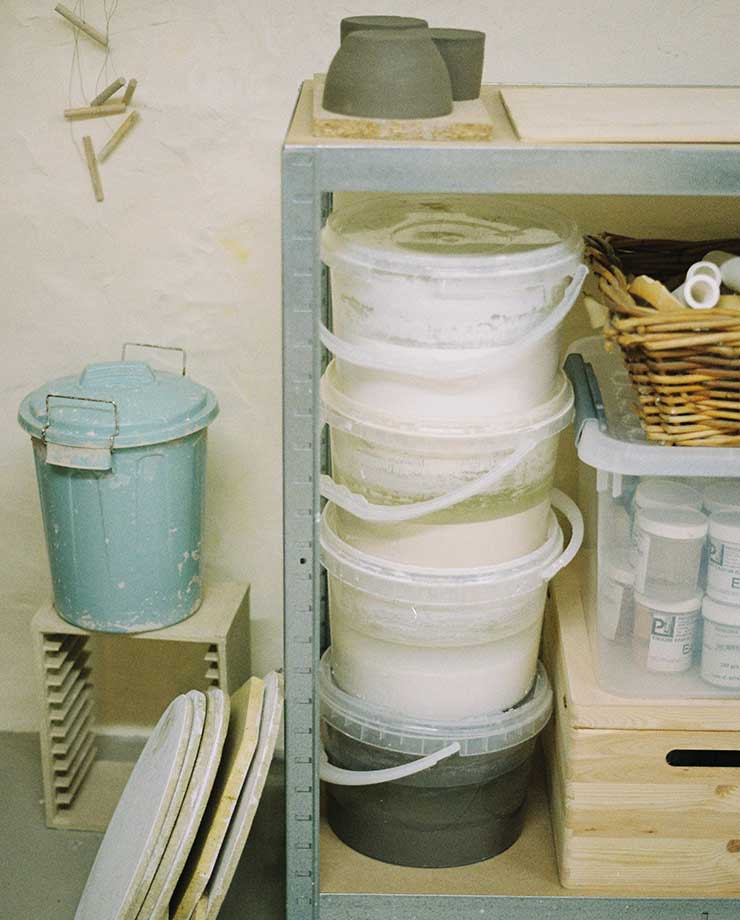
Besides dada-days, you are a creative person as well. What do you love so much about ceramics?
When I started in ceramics, something clicked for me. I really liked that it didn’t just give me a creative outlet, but it also forced me to slow down and use all of my senses. Pottery helps root me in the present moment. Even after 4 years, I still haven’t tired of it. There is always room to improve creatively and technically, so it never gets boring. I also love ceramics because it’s so versatile; you can make decorative pieces like sculptures and functional things like tableware. I love surrounding myself with handmade objects that help add personality to my home. Every object holds a little memory for me – I guess this is why ceramics has become my preferred form of creative expression.
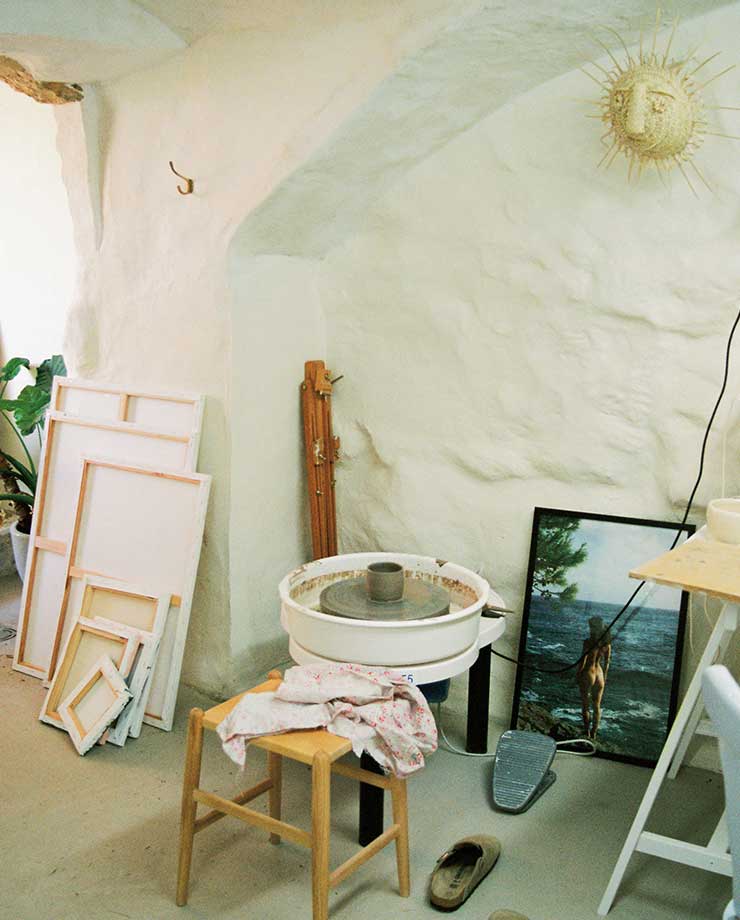
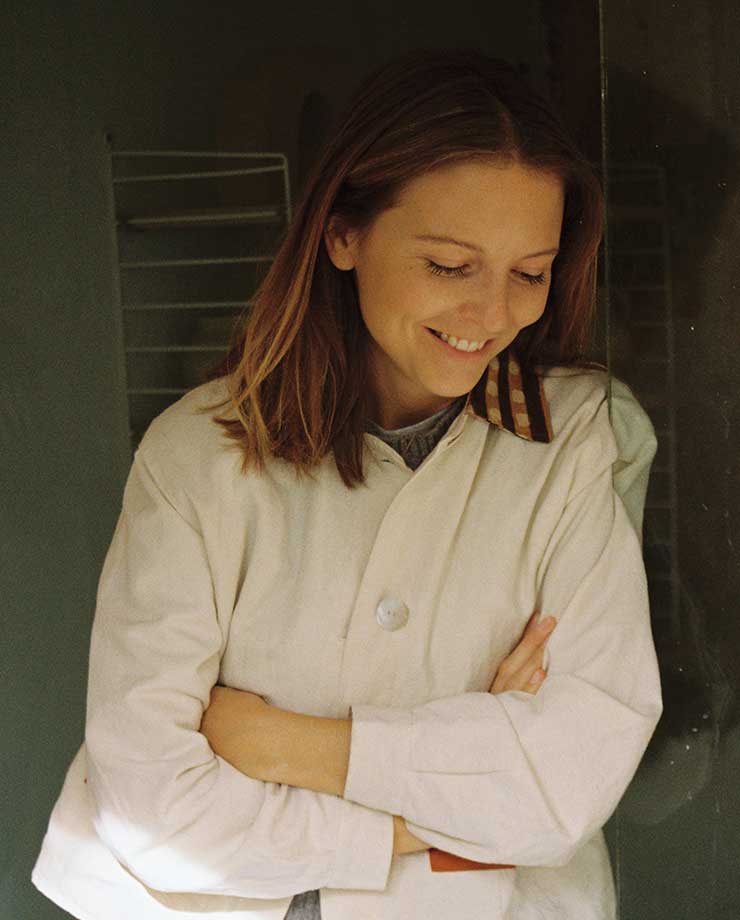
What does handbuilding give you that wheel throwing doesn’t? As a potter, do you prefer one over the other?
When I started in ceramics, I was first drawn to wheel throwing. I really liked the results, challenge, and the clean aesthetic. But the disadvantage of wheel throwing is that it is very time consuming. It requires a lot of precision, attention, and creates quite the mess. For these reasons, It can be difficult to carve out the time I would need to get really dedicated, especially with a child.
On the other hand, handbuilding is something I can do in my living room while spending time with my daughter. I can start and stop whenever I want to, so it’s more practical for me. I also like it because you see no one can replicate what you do. You can see it in the objects themselves – every piece is unique to the creator. While wheel throwing is more technical and uniform, I like you can put more personality into the objects you create with handbuilding. It’s also not as frustrating as wheel throwing; there’s much more room for error. I really enjoy both techniques but for different situations. Wheel throwing is more for people interested in achieving “perfect technique” and handbuilding is better suited for people looking to relieve stress and create something unique, I guess.
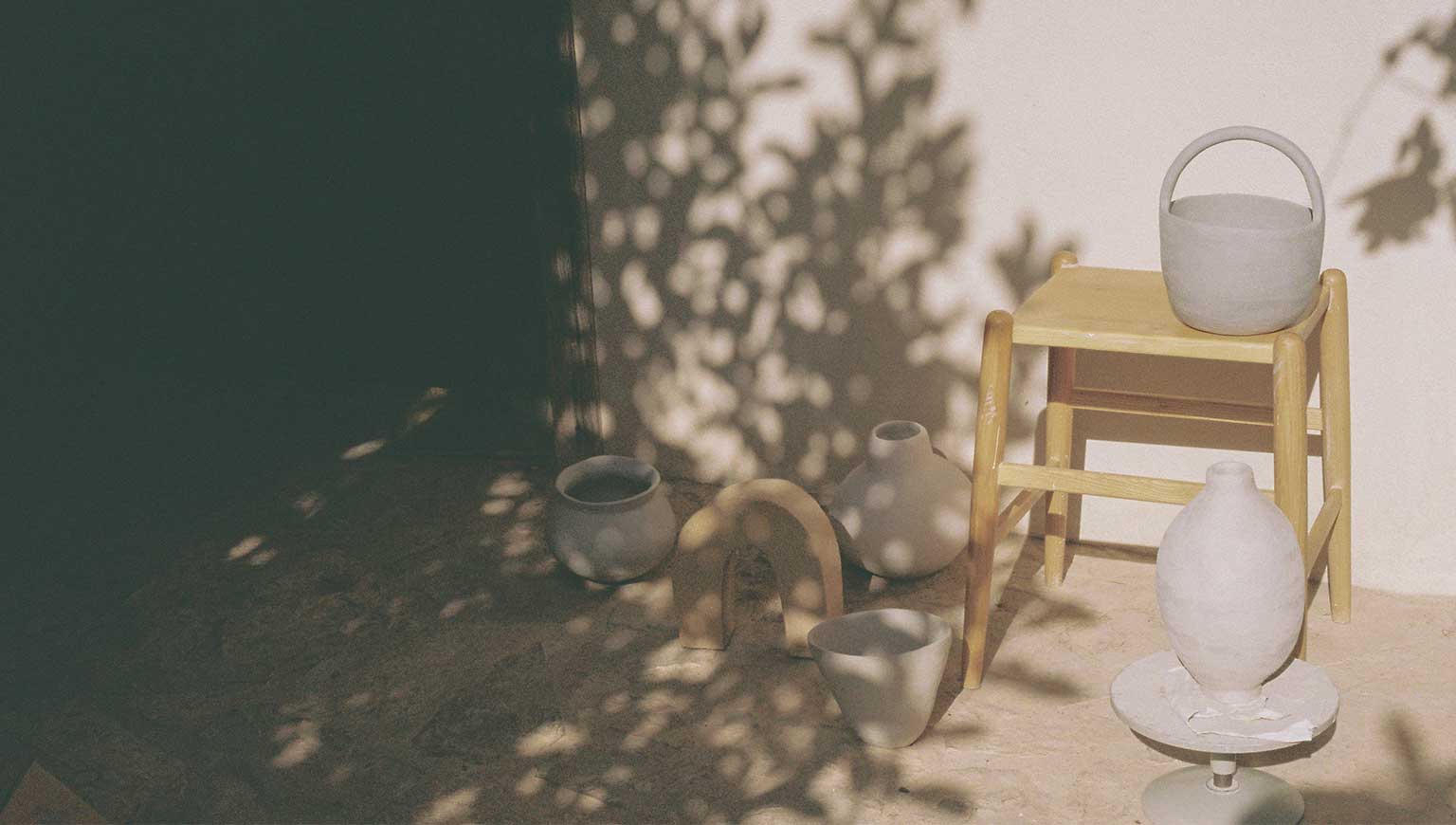
Why was it important for you to create your own studio? How does this space serve you both creatively and personally?
I used to work in a coworking studio in Berlin and one in Palma too when I first moved here. It was nice to be inspired by other creators, but I really enjoy having my own space. While creative coworking has its benefits, it limited the time I could spend in the studio (2-3 hours per week). But pottery is an ongoing process that needs more attention. For me, once a week just wasn’t enough. I wanted to try out my own glazes, clays, and fully immerse myself in the process.
When we were looking to buy a home, there was one place with a cellar that had the possibility of being converted. I never expected to have my own studio, but the opportunity presented itself and I went for it. Having my own creative space is a real treat for me – I feel very grateful. It also gives me a space to call my own, somewhere I can create most freely and think most clearly.
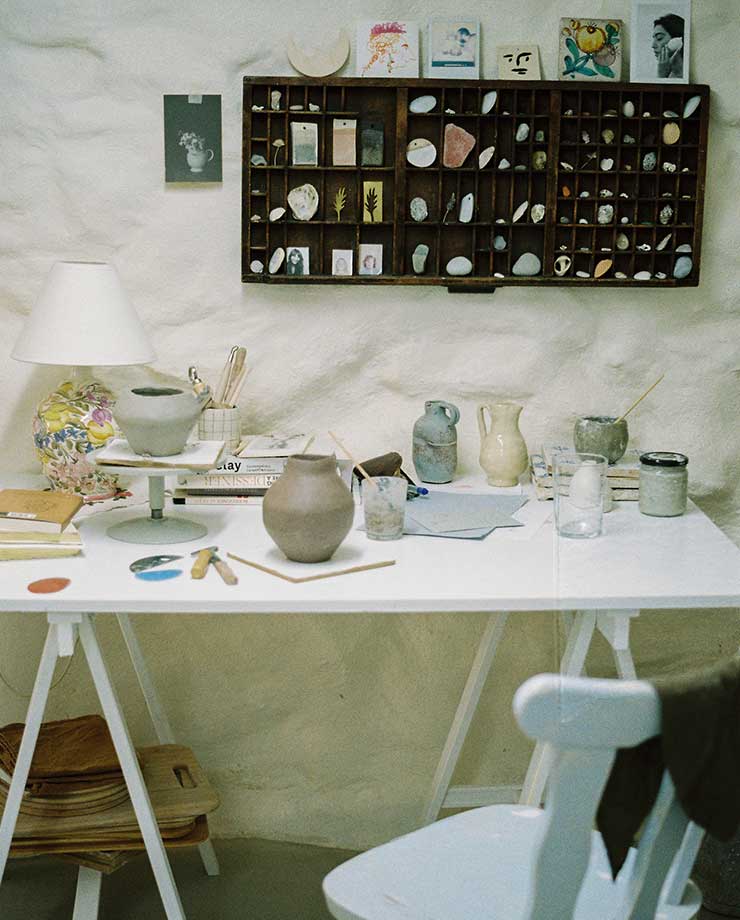
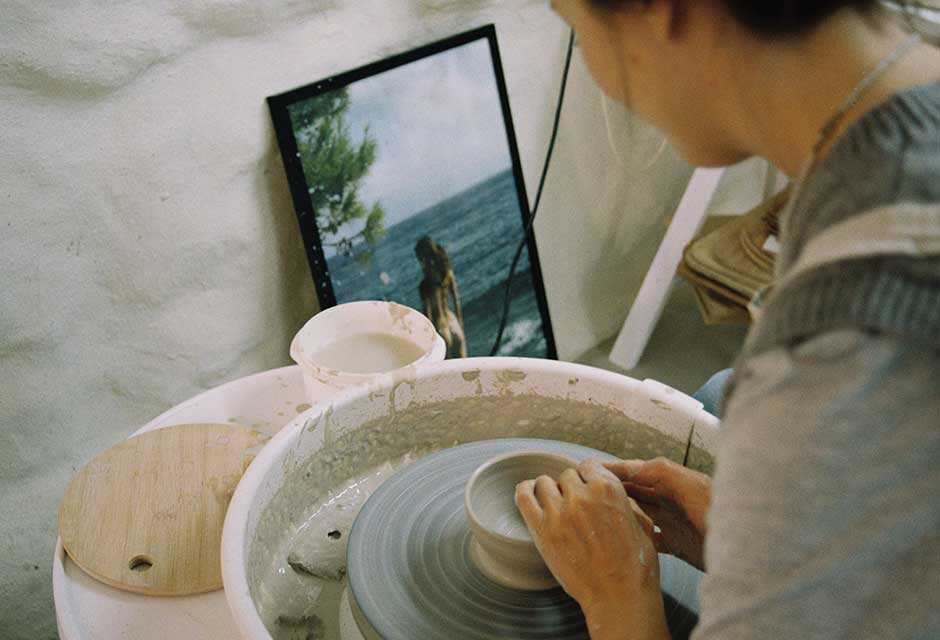
What do you hope to convey to those who come to your class? What do you want participants to take away from their dada-days experiences?
I really hope to make a space where people can experiment without judgement. My class is great for everybody to explore creatively, to make mistakes, and to let go of restrictive ideas about what “good art” is. Handbuilding is the perfect introduction to pottery because it’s a forgiving technique and mistakes often become the best details. Everybody has to start somewhere, so I want to give people the tools and inspiration to simply see where the material takes them and go from there.
Awesome! Many thanks for the inspiring interview!
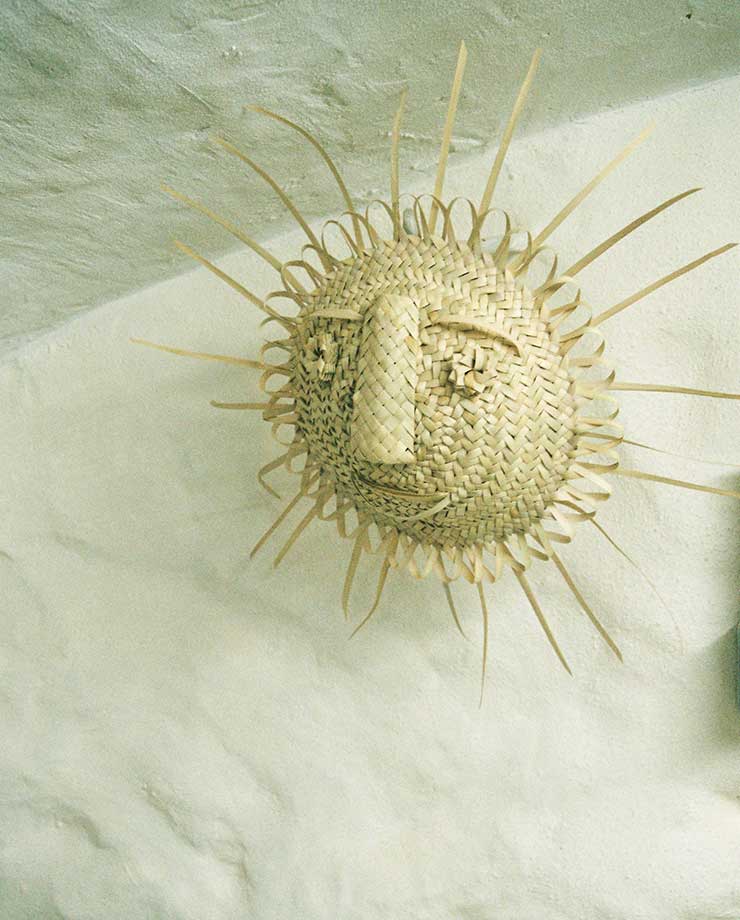
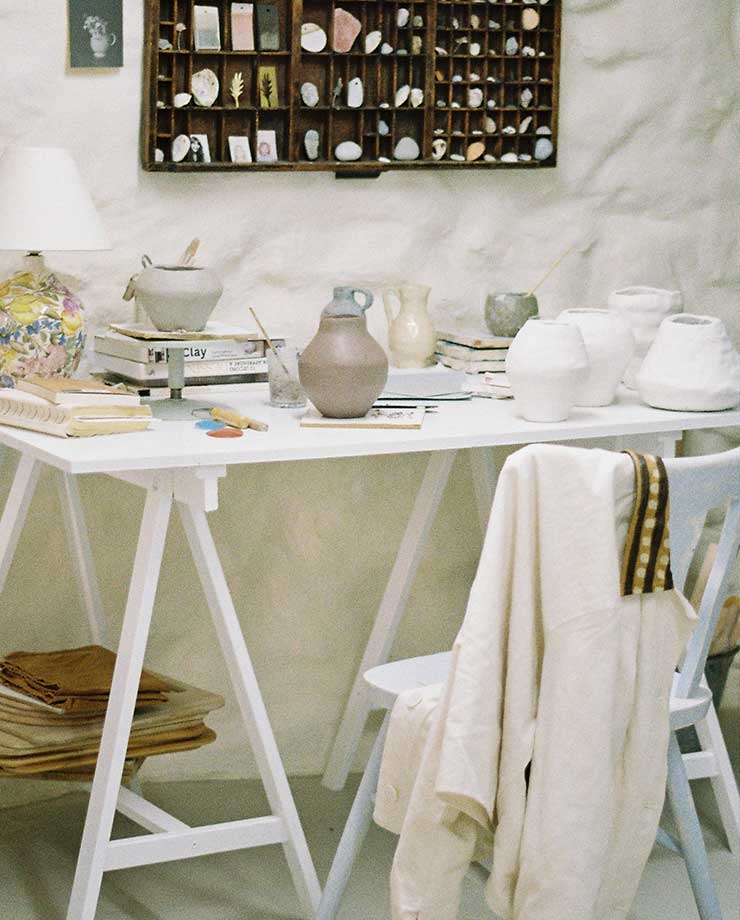
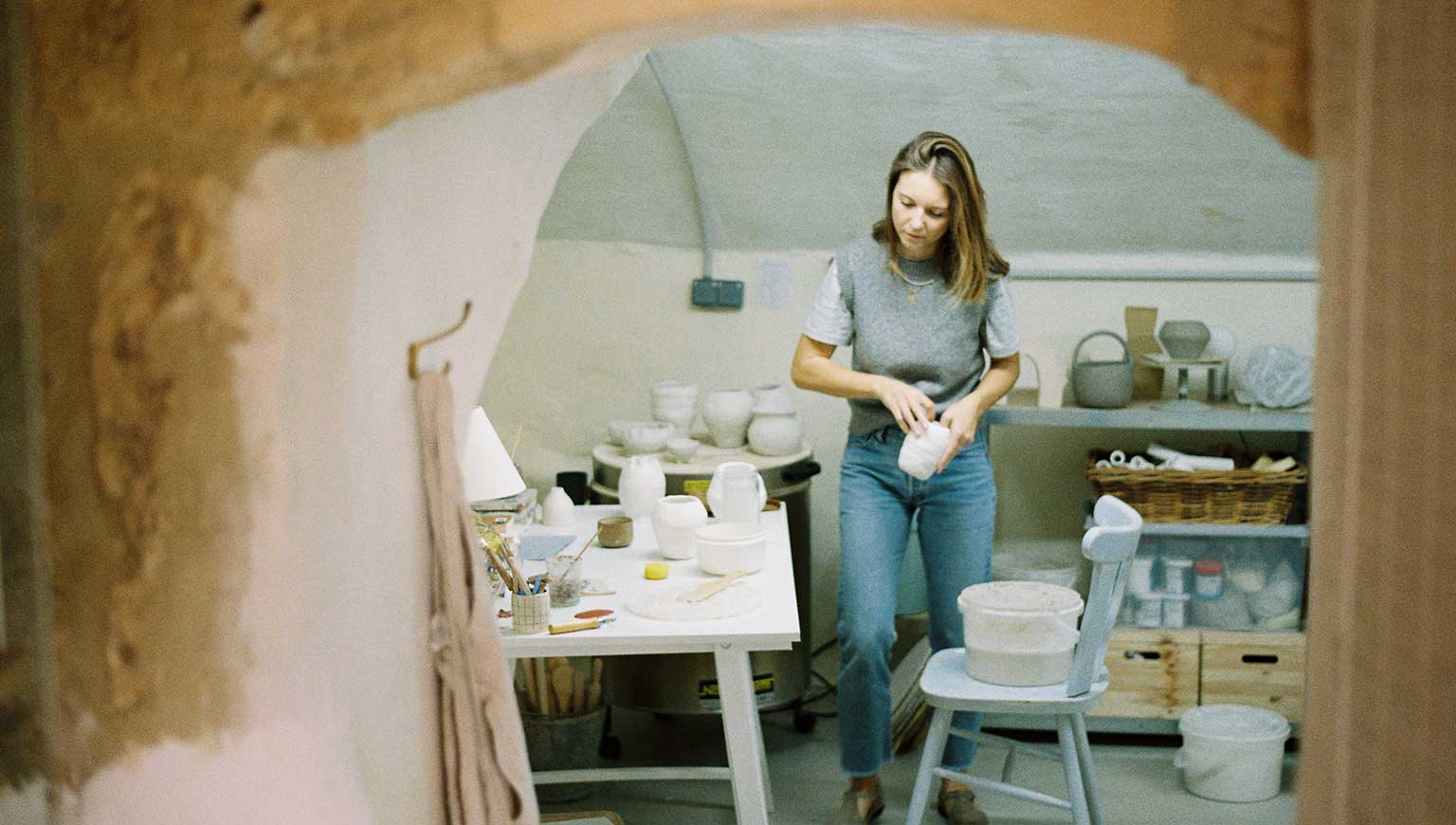
All Classes by Lisa Heschel
-
Ceramics Creating with Clay Lisa Heschel
Surrounded by a garden of tranquil green hues - this class allows you to relax, connect, and experiment along with other curious-minded creatives. Using simple pinch pot and coiling techniques, we will guide you through the foundational skills needed to create your own personalised vase or bowl.
Campanet, 98€
English, German, Spanish
Learn More
